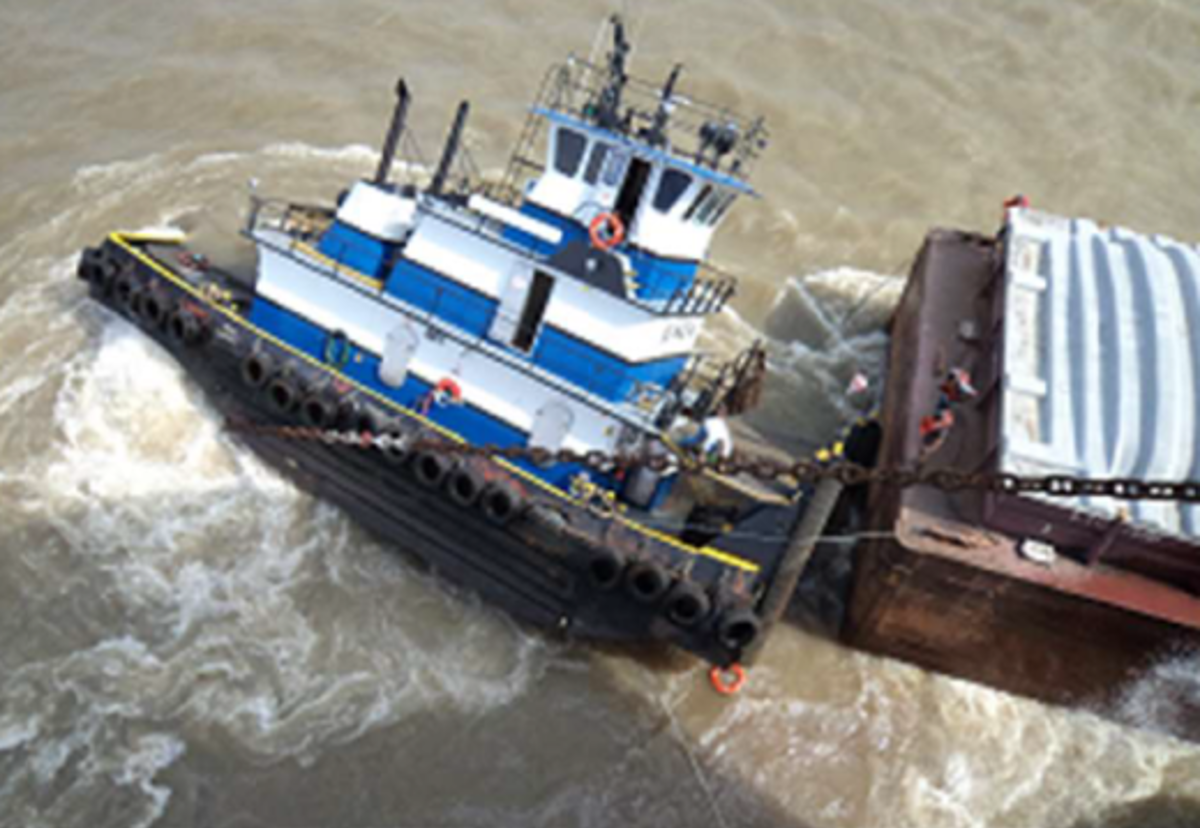Have a regime when the current’s abeam – ensure adequate manoeuvring space!
- Safety Flash
- Published on 1 July 2019
- Generated on 22 February 2026
- IMCA SF 15/19
- 2 minute read
Jump to:
The United States Coast Guard (USCG) has issued Safety Alert 03-19 relating to the consequences of manoeuvring in high current environments.
What happened?
Recently there were three marine casualties that resulted in the sinking of towing vessels on the Lower Mississippi River. One of the casualties resulted in a fatality. These cases are all under investigation by the Coast Guard, but the preliminary fact finding indicates there are some similarities between the three incidents.
In all three cases ‘towing vessels became pinned against another object in an aspect that exposed the vessel broadside to very strong currents.’ Once in that position, the vessels could not recover and sank.
Whilst this alert deals with a river environment, the underlying issues are applicable to the marine environment, particularly where small boats are being used, and in the offshore renewables sector and/or where there are strong tidal flows.

Recommendations
The U.S. Coast Guard strongly recommends that towing vessel owners, operators, and other responsible parties take the following measures:
- Avoid transiting between two anchored vessels, between two barge fleets, or between any other set of stationary objects.
- Minimise the number of operations which require the vessel to be positioned beam-to the current.
- Establish a minimum distance between the towing vessel and another vessel/object prior to conducting any operation that requires the vessel to be positioned beam-to the current.
- Recognise the risks involved in operating under high current conditions and weigh those risks before attempting to cross in front of stationery objects or attempting an operation that requires the vessel to be positioned beam-to the current.
The full U.S. Coast Guard alert 03-19 can be found here.
Members may wish to refer to:
- Vessel made contact with rig legs [effects of wind and current were not properly risk assessed]
- Vessel hit moored barge whilst turning
- Near-miss incidents: Crew transfer vehicles approaching wind turbines
Related Safety Flashes
-
IMCA SF 07/19
18 April 2019
-
-
IMCA SF 10/18
9 May 2018
-
-
IMCA SF 06/15
8 May 2015
IMCA Safety Flashes summarise key safety matters and incidents, allowing lessons to be more easily learnt for the benefit of the entire offshore industry.
The effectiveness of the IMCA Safety Flash system depends on the industry sharing information and so avoiding repeat incidents. Incidents are classified according to IOGP's Life Saving Rules.
All information is anonymised or sanitised, as appropriate, and warnings for graphic content included where possible.
IMCA makes every effort to ensure both the accuracy and reliability of the information shared, but is not be liable for any guidance and/or recommendation and/or statement herein contained.
The information contained in this document does not fulfil or replace any individual's or Member's legal, regulatory or other duties or obligations in respect of their operations. Individuals and Members remain solely responsible for the safe, lawful and proper conduct of their operations.
Share your safety incidents with IMCA online. Sign-up to receive Safety Flashes straight to your email.